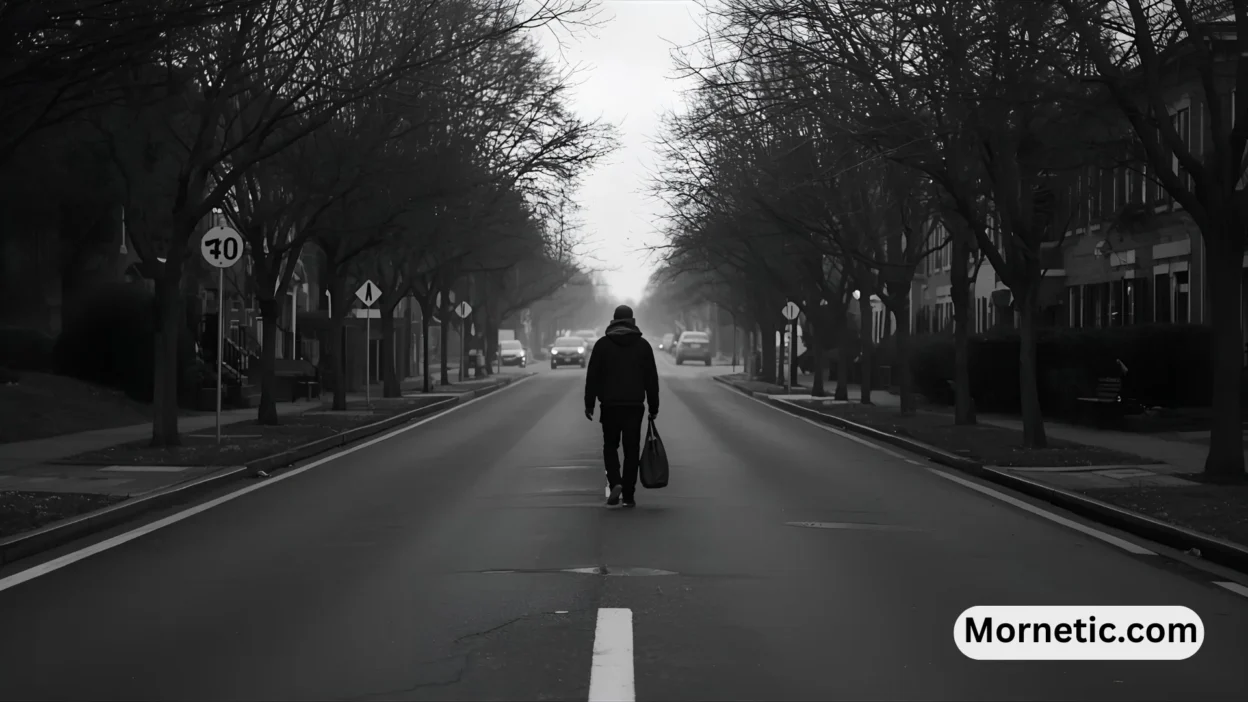There are songs that you simply listen to, and then there are songs that you experience. Johnny Cash Sunday Morning Coming Down falls squarely into the latter category. This isn’t just a country music classic; it’s a raw, three-minute vignette of loneliness, regret, and the universal search for peace. The track didn’t just climb the charts—it carved its way into the soul of American music.
While Kris Kristofferson penned the masterpiece, Johnny Cash’s world-weary baritone gave it profound, autobiographical weight. When he sang those lines on his seminal TV show, he wasn’t just performing; he was bearing witness to a feeling every listener has known. Let’s explore the story behind the Johnny Cash Sunday Morning Coming Down phenomenon, its lyrics, its iconic performances, and why it still resonates so powerfully today.
The Songwriter’s Genesis: Kris Kristofferson’s Masterpiece
Long before it became a Johnny Cash standard, the song Sunday Morning Coming Down was the crowning jewel of a struggling songwriter named Kris Kristofferson. He wrote from a place of stark reality while living in a cramped Nashville apartment.
- 🎯 A Slice of Autobiography: Kristofferson essentially wrote his own life into this song. He was the man “with the waking up alone,” struggling financially and grappling with the haze of long Saturday nights.
- ✈️ From Military to Music: His jump from a promising military career to music industry uncertainty filled the song with palpable dislocation and a search for new meaning. You can explore more about Kristofferson’s fascinating journey on the Official Kris Kristofferson Website.
- 📝 The Poetry of the Mundane: Kristofferson had a unique gift for finding profound beauty in everyday moments. The smell of frying chicken, distant church bells, and tying shoes turned his personal story into a universal one.
Johnny Cash’s Definitive Interpretation: Making It His Own
When Johnny Cash recorded Sunday Morning Coming Down for his 1970 album Hello, I’m Johnny Cash, he did more than cover a song. He absorbed it, internalized its pain, and projected his own struggles onto Kristofferson’s framework.
- 🎙️ The Voice of Experience: Cash’s public battles with addiction meant his lines about “beer that had burned me so” carried undeniable authenticity. Learn more about his life at the Johnny Cash Official Site.
- 🏆 A Chart-Topping Hit: Cash’s version spent two weeks at No. 1 on the Billboard Hot Country Singles chart in 1970. Consequently, it became one of his most signature television show era songs.
- ❤️ A Deeper Empathy: Cash softened some rough edges to highlight poignant loneliness rather than just the hangover. As a result, his version feels more like a lament than a complaint.
Deconstructing the Lyrics: A Line-by-Line Journey Through Loneliness
The power of the Johnny Cash Sunday Morning Coming Down lyrics lies in their devastatingly simple yet evocative nature. Let’s walk through the scenes it paints and the emotions it evokes.
- 🌅 The Opening Scene: “Well, I woke up Sunday morning with no way to hold my head that didn’t hurt.” This first line establishes both physical and spiritual costs from the night before.
- 👃 The Sensory Assault: The smell of frying chicken and distant church bells act as cruel reminders of a wholesome world from which the narrator feels completely alienated.
- 👞 The Slow Motion: “Cleanin’ up and shavin’ and stuff” feels laborious. Even tying shoes becomes a monumental effort, emphasizing a life out of sync.
- 👻 The Ghost of Saturday Night: Being “still stoned” and “still alone” confesses that the night’s escapades provided no lasting solace.
- 🙏 The Song’s Climax: “On a Sunday morning sidewalk, I’m wishin’, Lord, that I was stoned” seeks numbness from the pain of utter loneliness.
The Iconic Johnny Cash Show Performance: A Television Moment for the Ages
The July 16, 1970 performance of Sunday Morning Coming Down on The Johnny Cash Show is legendary. This was when the song seared into the national consciousness.
- 🎬 Defying the Network: CBS censors demanded Cash change the word “stoned” for television broadcast.
- 💥 Cash’s Defiant Stand: Although he rehearsed with a substitute word, during the live broadcast he sang the original line with defiant conviction.
- 👏 The Audience’s Reaction: The pause after “stoned,” followed by erupting applause, showed the audience’s respect for his honesty. Ultimately, it was a victory for artistic expression.
Analyzing the Johnny Cash Sunday Morning Coming Down Lyrics and Music
While both Kristofferson’s and Cash’s versions are masterpieces, they offer subtly different emotional experiences. Understanding these differences enriches our appreciation of the Johnny Cash Sunday Morning Coming Down legacy.
- 🎸 Kristofferson’s Raw Grit: His recording feels rougher and more conversational, like a direct confession from someone still struggling.
- 🎹 Cash’s Somber Reflection: Cash’s version feels more polished and musically grander, like a memory recounted with wisdom.
- 🎵 Musical Arrangement: Kristofferson uses folk guitar while Cash employs his signature “boom-chicka-boom” rhythm for a solemn quality.
The Song’s Musical and Lyrical Structure: A Work of Art
The genius of Sunday Morning Coming Down isn’t just in its words, but its construction. Music and lyrics create perfect melancholic harmony.
- 🎶 The Waltz Time: The 3/4 waltz rhythm creates a swaying, disorienting feel that mimics a man’s unsteady gait.
- 📖 The Vivid Storytelling: Instead of a linear plot, the lyrics present cinematic images that form a coherent emotional narrative.
- 🎹 The Instrumental Breaks: The crying steel guitar and somber piano lines express loneliness beyond words.
Cultural Impact and Legacy: More Than Just a Song
The Johnny Cash Sunday Morning Coming Down recording transcended country charts to become a permanent American cultural fixture. Its influence appears in numerous ways.
- 🏆 Award Recognition: The song earned Cash Song of the Year at both the CMA and ACM Awards in 1970.
- 🎬 Film and Television: Countless movies and TV shows use it to underscore profound loneliness or existential reflection.
- 🎤 A Standard for Other Artists: Everyone from Ray Stevens to Me First and the Gimme Gimmes has covered this timeless feeling.
Why Sunday Morning Coming Down Still Resonates Today
In our fast-paced, hyper-connected world, the Johnny Cash Sunday Morning Coming Down themes feel more relevant than ever. It’s not about a drinking hangover but an emotional one.
- 😔 The Modern Loneliness: Social media creates feelings of isolation despite constant connection. This song gives voice to that specific anxiety.
- 🧘 The Search for Mindfulness: The narrator’s walk represents a desperate search for peace that aligns with today’s focus on mental well-being.
- 🎧 Streaming Era Discovery: New generations discover Cash’s power on Spotify and YouTube. Consequently, the song’s legacy continues growing through reaction videos and streaming playlists.
The Deeper Themes: Loneliness, Regret, and Redemption
At its core, the Johnny Cash Sunday Morning Coming Down performance is a spiritual song. It’s a quiet prayer from a lost man examining his choices and yearning for connection.
- ⛪ The Spiritual Void: The ringing church bell reminds him of a faith community he feels separated from during his secular pilgrimage.
- 🔄 The Cycle of Regret: The song captures how self-destructive behavior leads only to more pain and isolation.
- ✋ A Glimmer of Hope? The acts of wishing and walking imply a desire for something better, meaning he hasn’t given up entirely.
Cover Versions and Tributes: Keeping the Spirit Alive
A great song can be reinterpreted. The Johnny Cash Sunday Morning Coming Down classic has attracted diverse artists drawn to its timeless story.
- 🤠 Country Legends: Willie Nelson and Waylon Jennings performed it while staying true to country roots.
- 🎸 Rock and Folk Interpretations: Even U2’s Bono and The Edge recorded it, proving its appeal transcends genres.
- 🌟 A Showcase for Vocalists: The song challenges singers to convey complex mixes of self-pity, weariness, and longing.
Sunday Morning Coming Down in the Digital Age
How we consume and discuss this Johnny Cash Sunday Morning Coming Down classic has evolved, but its power remains undiminished online.
- 📺 YouTube React Culture: Music reactors showcase new generations experiencing its emotional impact for the first time.
- 💬 Online Lyrics Analysis: Forums fill with discussions about the song’s meaning and personal stories of how it helped listeners.
- 📻 Streaming Playlists: Curated lists like “Classic Country Storytellers” and “Songs for a Rainy Day” introduce it based on mood and taste.
Frequently Asked Questions About Johnny Cash Sunday Morning Coming Down
Who originally wrote “Sunday Morning Coming Down”?
Kris Kristofferson wrote this legendary song. Ray Stevens first recorded it in 1969 before Johnny Cash’s iconic 1970 version.
What does “wishin’, Lord, that I was stoned” mean?
While “stoned” can mean drug influence, the context suggests wanting numbness from sharp loneliness and regret.
Did Johnny Cash change the lyrics?
Cash made few changes for his recording. However, his famous TV performance defied censors by singing the original “stoned” lyric.
What album is “Sunday Morning Coming Down” on?
Cash’s version appears as the title track of his 1970 album Sunday Morning Coming Down and on Hello, I’m Johnny Cash.
Why is the song considered a country music classic?
Its masterful storytelling uses simple language to evoke powerful emotions. Combined with Cash’s authentic delivery and country-waltz arrangement, it represents honest country music.
Conclusion: The Enduring Power of a Perfect Song
Johnny Cash Sunday Morning Coming Down is more than a relic of bygone country music. It’s a timeless human document that gives voice to quiet despair. The song finds beauty in bleakness and offers comfort by reminding us we’re not alone in our loneliness.
Kris Kristofferson gave it a soul, and Johnny Cash gave it a heartbeat. Decades later, that heartbeat remains strong, echoing on sidewalks and in listeners’ minds everywhere as a perfect, sad, beautiful reminder of music’s power. For more deep dives into classic albums, check out our analysis of Cash’s Live at Folsom Prison concert.

Grace is a lifestyle writer from California who loves starting mornings with positivity. At Mornetic, she shares uplifting quotes and cheerful messages to brighten your day.




